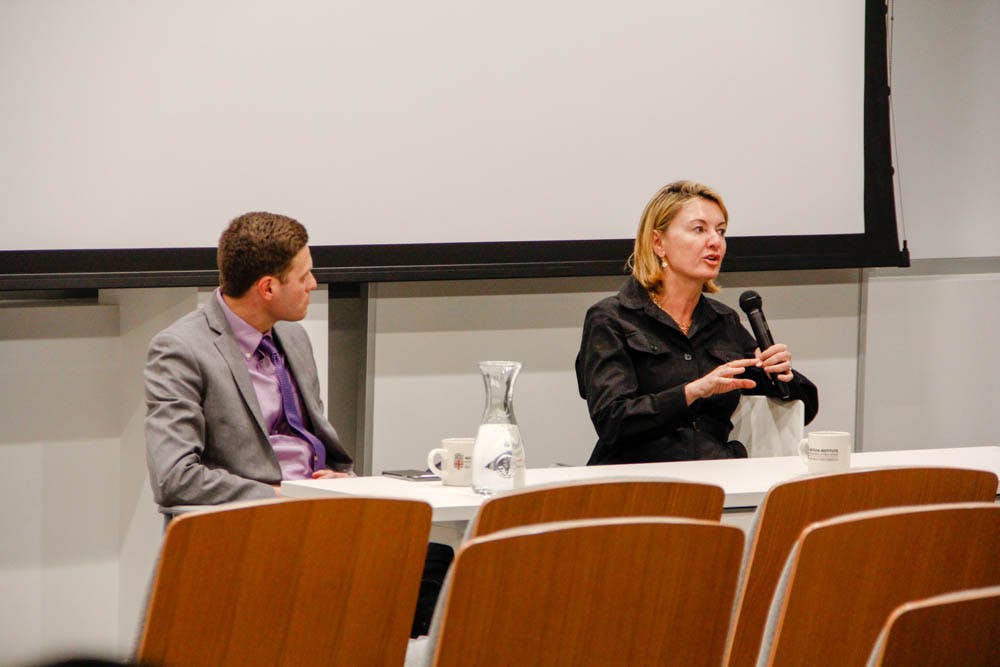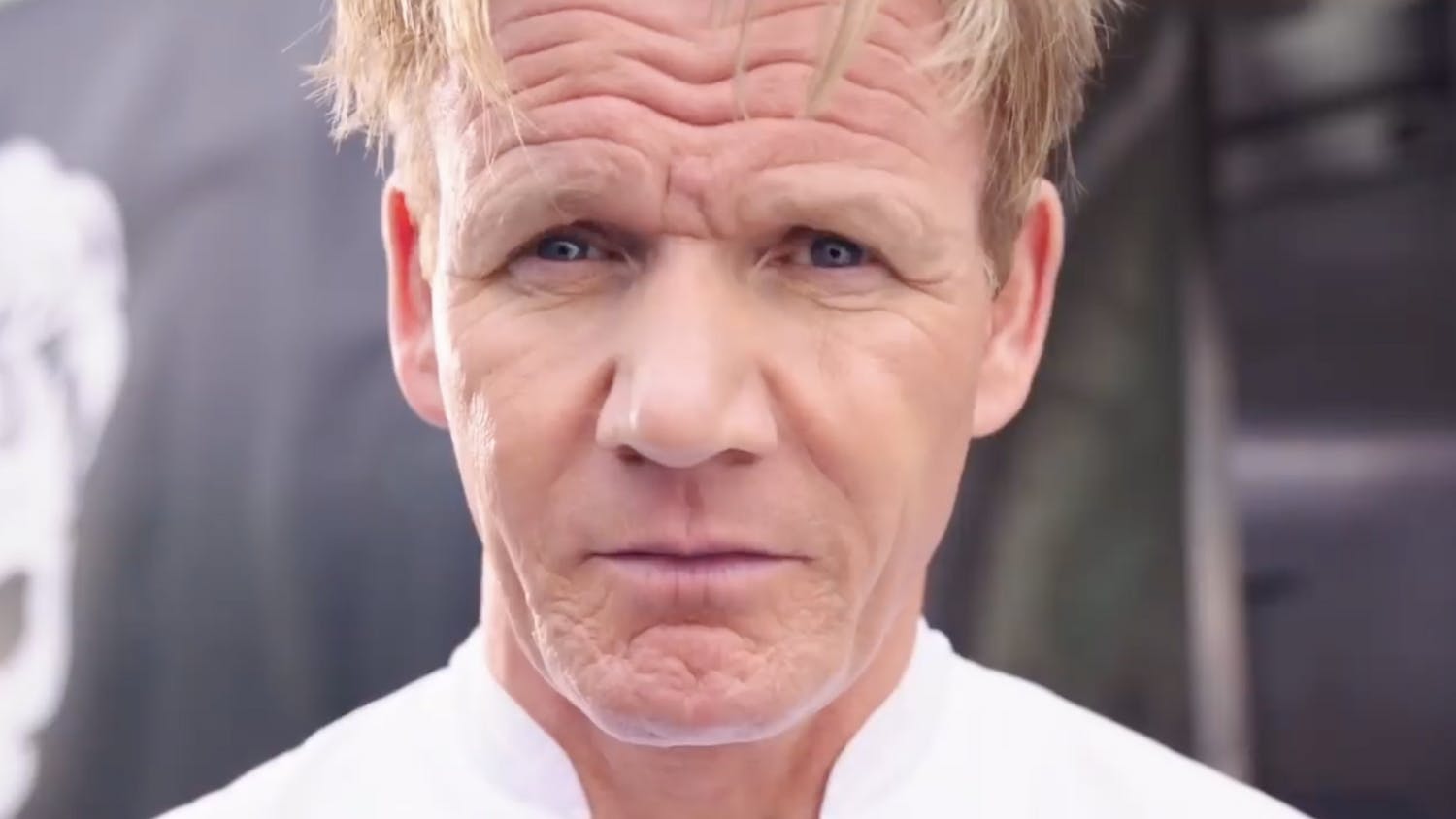Before international lawyers, activists and Rwandan women worked to win justice at the International Criminal Tribunal for Rwanda, rape had never before been prosecuted as a war crime.
“The Uncondemned,” a documentary screened by the Center for Human Rights and Humanitarian Studies Thursday evening, examines the first trial that prosecuted rape as a war crime and an act of genocide in an international court. A question-and-answer portion with Sara Darehshori ’89, who prosecuted the case as a young lawyer in 1997, followed the screening.
The documentary takes an “in-depth look” at the trial of Jean-Paul Akayesu and the tensions between human rights law as it is written and “how it’s actually practiced on the ground in some of the most difficult and complex settings in the world,” said Director of the CHRHS Adam Levine in his opening remarks for the event.
The film features commentary and reflections from Darehshori and the trial’s other prosecutor Pierre-Richard Prosper, as well as activists and the three Rwandan women who anonymously testified in the trial to Akayesu’s knowledge of rapes that occured and were used as weapons of war during the 1994 Rwandan Genocide.
One of the takeaways of the film, Darehshori told The Herald, is the ability for individuals to make a difference. She added that while the women spoke up “for their own personal reasons,” their testimony “had a ripple effect much greater than they could have expected, both in terms of precedent and in terms of other victims feeling like they could come forward.”
The women only recently received recognition for the role they played in the trial and in setting precedent for international law, Darehshori said. Through the film and co-director Michele Mitchell, they have been able to communicate with and support other survivors of sexual abuse in conflicts around the world.
After the screening, Darehshori discussed modern humanitarian aid and human rights issues with Levine and answered questions from student and faculty attendees.
Darehshori, when discussing the progress made to hold perpetrators accountable for using rape as a weapon in war, noted the significance of a changed “baseline assumption” that now recognizes rape as a “part of war.” While first investigating the Akayesu case, sexual abuse “was not even on the radar screen because there was so much fear that we would screw up the genocide case,” she said. “It was such a clear case of genocide” that failing to obtain a conviction would be “monumentally disastrous.”
Now, the International Criminal Court immediately looks into issues of sexual abuse when investigating war crimes and genocide, Darehshori added.
Also during the question-and-answer portion, Lily Gordon ’21 asked why such young and relatively inexperienced lawyers were chosen to prosecute the Akayesu case. Darehshori was only 27 when she began working in Rwanda as co-counsel for the prosecution.
“When I got there, I assumed that I would be the most junior, bag-carrying person,” she said, but more experienced prosecutors were unable to move to Rwanda with their families for security reasons.
In response to another question, Darehshori said, “Justice means different things to different people.” One of the most important things is to understand what would justice be for “the people for whom you’re seeking justice.”
Darehshori also addressed the issue of some humanitarian aid workers committing sexual abuse while in the field in response to a question from Levine. Power dynamics and cultural issues sometimes combine to create complicated problems, she said, noting that “there’s a real question about implementation and how resources are devoted to ensuring that people are doing the right thing.”
Students from PHP 1802S: “Human Security and Humanitarian Response: Increasing Effectiveness and Accountability,” taught by Levine, attended the screening as part of the course. Ingrid Mader ’20 said the event “really complemented” course discussions about the humanitarian aid system and international law.
After the event, Darehshori told The Herald about the impact of her time at Brown on her career, noting her experience volunteering at a rape crisis center as a student.
“If you responded to someone with sympathy, it could change their trajectory and how they recovered from the experience,” she said. “The rest of my career has actually been focused on institutional response to sexual violence in some way or another.”





